If we want to live in an equitable society where everyone feels like they belong and are treated with dignity and respect, then we need to start being realistic about the gravity and scope of challenges we face. In most cases challenges we face are structural and systemic in nature. There is no easy fix for inequality. Most of us are now aware of the problems with biased algorithms. We need to start talking about noisy algorithms too. The focus on bias—and the belief that it has a technical fix—means that we, in society, may be overlooking the wider problem.
Resources are limited in supply. We need fair and equitable distribution mechanisms for those resources. Any fix will have to deal with the prevailing and underlying causes. Reversing generations of harm will require myriad solutions, including investment in education and health care, new banking solutions, empowerment of women and investment in marginalized communities among others. The solutions are not simple because they must address so many differently layered customs and practices.
We have been living in a global village since time immemorial even though we coined the term globalization in the 20th century. From the very beginning of human civilization our forefathers understood the importance of collaborative-economy. Barter system is the result borne out of necessity. In the beginning our collaboration was chaotic but over a period of time we have tried to organize our efforts to maximize benefits. Smart cities like Harappa or Mohenjo Daro are nothing but epitome of human endeavor. Of late, with the advent of e-commerce and social media we have started recognizing the importance of distributed-trust in doing businesses in different geographies.
In the first half of the 20th century, the world had witnessed the First World War (1914 to 1918), Spanish flu (1918 to 1919), Great Depression (1920 to 1940), Second World War (1939 to 1945). Each one of these four mentioned events were thousands of times more severe in scope and scale than the current issues we are facing today. The Russian revolution and our freedom struggle were two more significant events in the first half of the 20th century. Even the infamous "Wuhan" also overthrew the Qing dynasty (1644-1912), China’s last feudal dynasty in 1912.
Today, application of technology is ubiquitous in our existence. We think zooming the blackboard will make everyone educated. We believe in the power of making AC room policies which work only on the papers. We prefer talking than listening. Our insecure-confidence is now institutionalized. Our statues are witness to our invisible demise. We have learnt how to engineer enigma but forgot to trust our neighbors. I suspect that the problem is more to do with tunnel vision: we have been so obsessed with innovating, operating within an introverted world where everyone speaks the same technical language, that we have lost common sense — and the broader vision of how our actions affect the wider world or are perceived by it.
Epidemics are a category of disease that seem to hold up the mirror to human beings as to who we really are. That is to say, they obviously have everything to do with our relationship to our mortality, to death, to our lives. They also reflect our relationships with the society, with the environment- the environment that we create and the natural environment that responds. They show the moral relationships that we have toward each other as people, and we’re seeing an absence of that today.
The reason why truth matters is because whether we like it or not, we share the world with people unlike ourselves. We share the world with people who have commitments unlike our own, attachments unlike our own, who have fears and anxieties but also aspirations and joys and pleasures unlike our own. We have to make our peace with those basics somehow. There's no getting around the truth. This is a moment in our country, in the world when a lot of people are living out the fantasy of shutting themselves off, not having to worry about those differences. And it's precisely in these circumstances that we need that spirit of facts. We have to be willing to put our own guard down and ask the question, do I really understand where I am? Do I really understand the consequences of my dark fantasies?
In the absence of knowledge of percentages, illusory AI counts nonexistent GDP. But for a minute if we think that we are neither stupid nor ignorant, then how do we explain the apparent anomalies in our behaviour? Is it possible that there is a method in our madness? A cursory look will tell we know how to make decisions in our self-interest. If decisions in favor of self-interest are a forgone conclusion then why do not we use it consciously and deliberately to maximize outcome in favor of a group? Why don't we admit that we are selfish by design?
It's time when we should start recognising that 'Invisible hand' of 'self-interest' intertwined with 'distributed-trust' is the bedrock of a 'collaborative-economy'.
Answering the following questions may help you understand the concept better
1. Which country(s) supply palm oil to India?
2. You have 100 chocolates. You have distributed chocolates to your siblings in the following manner -
Half the chocolate went to your elder sister. Two-fifth of the rest to your younger brother. How many chocolates are still with you?
3. What is the symbiotic relationship between Dosa and Sambar?
4. What should be the ideal color of your umbrella - white or black if getting rid of sunshine/heat is your only concern?
5. Who pays for your whatsapp messages?
Author


